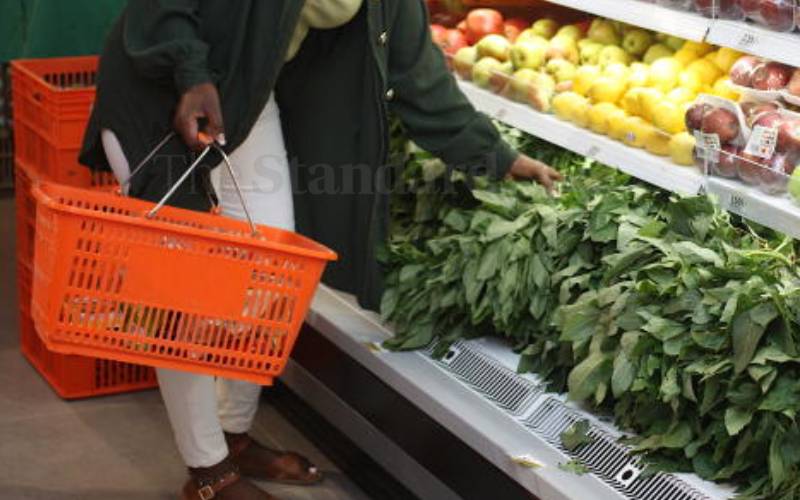×
The Standard e-Paper
Fearless, Trusted News

A shopper picks vegetables at a city supermarket, October 2021. [Wilberforce Okwiri, Standard]
The online protest over the rising prices was unexpected but not surprising. At the weekend, Kenyans decried the high prices under the hashtag #lowerfoodprices.